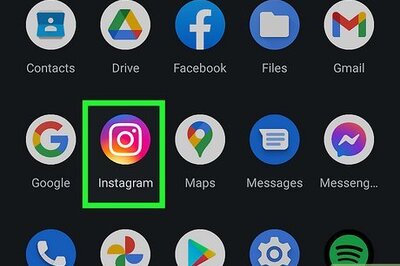
views
New Delhi: Finding a date online for this Valentine's Day or sending a gift to your partner through a website?
Well, it can be troublesome as cyberscammers would be preying to exploit gullible Internet users through e-cards, spams and viruses in this season of love, say experts.
From fake online dating profiles used to fool people, to phony eCards, be aware of cybercrooks who can pull on your heart strings to try and get what they want - your money and sensitive information, they say.
"Malware attacks that occur during special days or festivals employ social engineering tactics that play upon human weaknesses and influence people into falling for scams.
With Valentine's Day nearing, cyber criminals scout for vulnerable hearts to trap by using fake online dating profiles or phony e-Cards that link to malware," says Vinoo Thomas, Technical Product Manager, McAfee Labs.
Spam and phishing attacks usually increase during Valentine's Day, as a lot of people send e-cards, and shop online. Cyber criminals take advantage of this increased online traffic by sending spams, free holiday offers and invites to parties.
"The surprise e-card from an anonymous sender could give you a lot of heartache as it may be having a hard drive hack that can steal your identity. And that online flower purchase from an unprotected website can cause problems through credit card theft," says Pavan Duggal, a cyberlaws expert.
According to a recent report by online market research company Juxtconsult, there are around 49 million internet users in India out of which 25 million browse the internet every day.
"An anonymous email may ask about your financial details - usually your credit card number. Needless to say, the information you provide will end up with a scammer who can empty your credit card or bank account in just about no time,"
says Duggal.
E-cards have been around since the advent of the internet and scammers widely use them as means of conning people.
"This usually starts when you receive an email with a link to open an e-card sent to you by your loved one. A website opens prompting you to do something like updating your Flash player by asking you to allow some installation. What actually happens is that a Trojan or backdoor worm gets installed, siphoning all your vital information for the perusal of the scammer," says Thomas.
Most of such websites disappear with in four to five days. Online threat protection company AVG Technologies estimates that around 8 to 14 million unique users worldwide are exposed to social engineering scams.
If someone is tricked into such a scam, it can leave a huge hole in his pocket.
"If a victim is scammed into sending money to their loved one in distress they can forget about the money sent. If a gift was purchased at a fraudulent website a knock-off product of inferior quality could be delivered or worse still the victim's credit card information could be misused to conduct fraudulent financial transactions," says Thomas.
To avoid such online romantic scams, one should not divulge personal and banking information on the Internet.
"Do not accept offers which appear too good to be true and do not click on unknown links or emails. Prevention is better than cure," says Duggal.




















Comments
0 comment